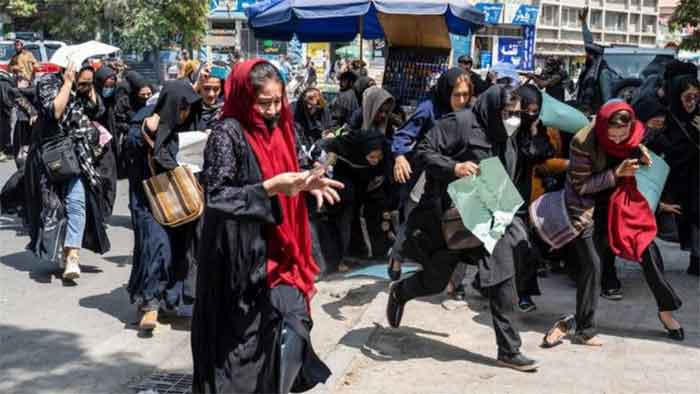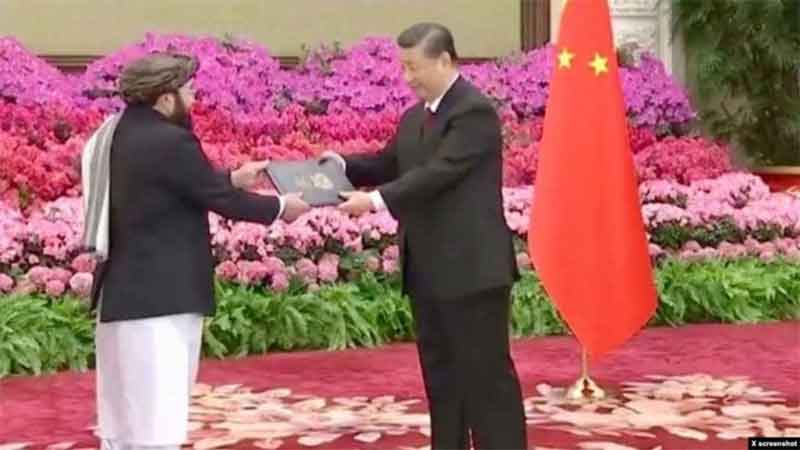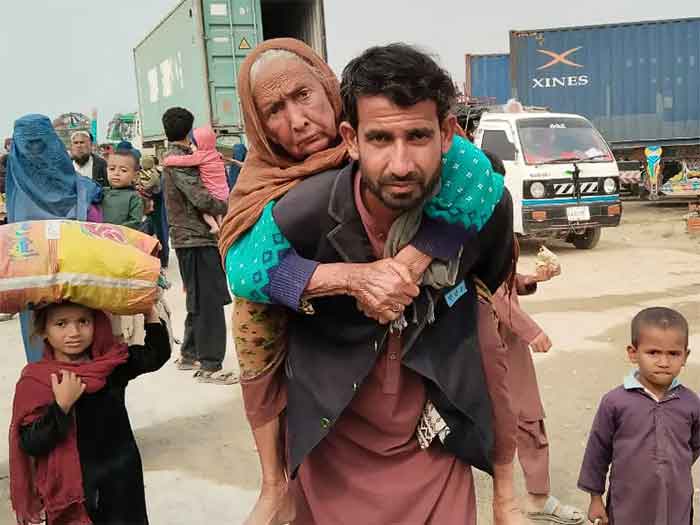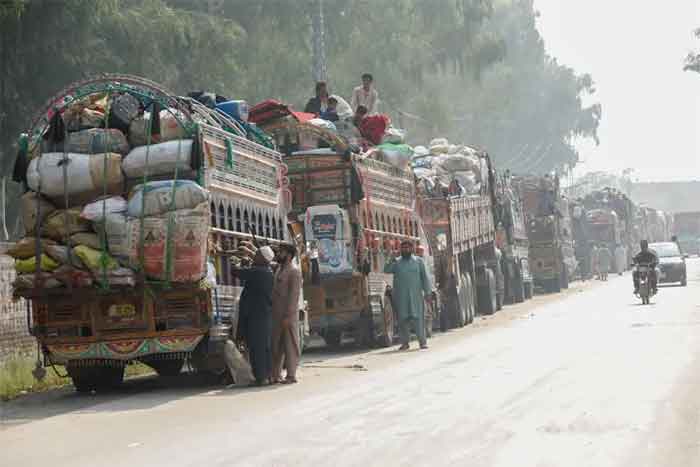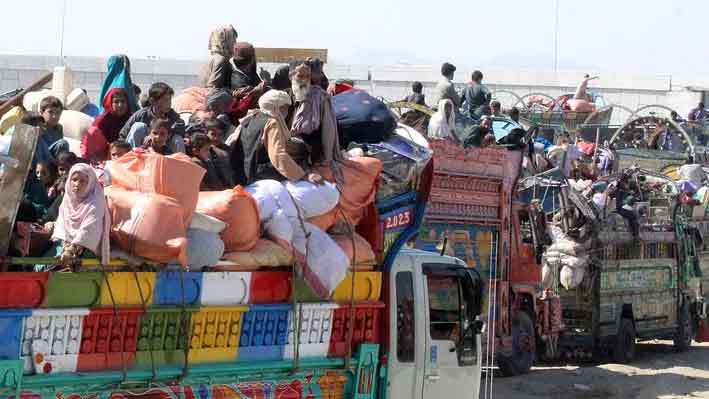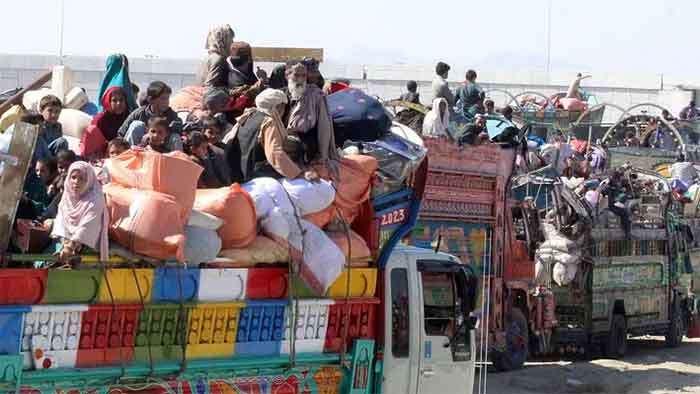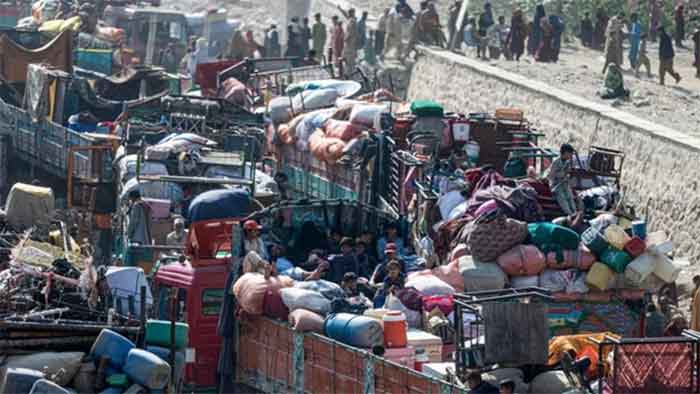Taliban fighters violently dispersed dozens of female protesters in Kabul. About 40 Afghan women marched through the capital city demanding rights, before the Taliban broke the protest march up by firing into the air. This women’s protest march occurred almost a year after the Taliban seized power.
The protesters chanted demands for “bread, work and freedom”, carrying a banner reading “August 15 is a black day” – a reference to the day the Taliban captured Kabul in 2021.
The fighters seized the women protesters’ mobile phones, stopping one of the first women’s protests in months.
After the protest was dispersed, some women attempted to take shelter in nearby shops but were reportedly pursued and beaten by Taliban fighters using the butts of their guns.
Since the Taliban takeover, women rights’ have been severely restricted.
“They didn’t beat us much this time,” one of the protesters told the BBC.
“They acted differently than earlier protests [when we were beaten]. They fired shots in the air. Though we were afraid we came out to advocate for the rights of girls, so that at least the Taliban will open schools for them.”
In the year since the Taliban returned to power, they have issued various orders restricting the freedom of women – barring them from most government jobs, secondary education and from travelling more than 45 miles (70km) without a male guardian.
In May, the militants decreed that Afghan women will have to wear the Islamic face veil for the first time in decades. If a woman refuses to comply, her male guardians could be sent to jail for three days – although this is not always enforced.
There have been minor sporadic protests over the past year, but any form of dissent is being crushed.
Only Country
Afghanistan is the only country in the world that officially limits education by gender – a major sticking point in the Taliban’s attempts to gain international legitimacy. Girls have been banned from receiving secondary education, the ministry for women’s affairs has been disbanded, and in many cases women have not been allowed to work.
An AFP report said:
The protesting women approached the education ministry. One video, apparently recorded in Kabul and posted on social media, shows Taliban militants firing their weapons into the air to break up an approaching female crowd.
The demonstrators also reportedly demanded the right to work and participate in politics.
Journalists Assaulted
Several journalists covering the rally were assaulted by Taliban members.
Local media also reported that the militants detained more than 10 journalists and media workers.
Women’s Lives Devastated
An Amnesty International report released in late July claims that “the Taliban crackdown” is devastating the lives of women and girls, who are being stripped of their rights to education, work and free movement.
The human rights watchdog also reported that those who peacefully protest against the new rules, “have been threatened, arrested, detained, tortured, and forcible disappeared.”
Roll Back the Clock
A New York Times report said:
In Afghanistan, girls are barred from secondary schools and women from traveling any significant distance without a male relative. Men in government offices are told to grow beards, wear traditional Afghan clothes and prayer caps, and stop work for prayers.
Music is officially banned, and foreign news broadcasts, TV shows and movies have been removed from public airwaves. At checkpoints along the streets, morality police chastise women who are not covered from head to toe in all-concealing burqas and headpieces in public.
A year into Taliban rule, Afghanistan has seemed to hurtle backward in time. The country’s new rulers, triumphant after two decades of insurgency, have reinstituted an emirate governed by a strict interpretation of Islamic law and issued a flood of edicts curtailing women’s rights, institutionalizing patriarchal customs, restricting journalists and effectively erasing many vestiges of an American-led occupation and nation-building effort.
For many Afghans — particularly women in cities — the sense of loss has been devastating. Before the Taliban seized power, some young people realized ambitions of becoming doctors, lawyers and government officials, and explored international opportunities, as well.
The report said:
“Now it is gone — all of it,” said Zakia Zahadat, 24, who used to work in a government ministry after she earned a college degree. She is mostly confined to home these days, she said. “We have lost the power to choose what we want.”
Door-to-door Searches, Arbitrary Arrests
The report added:
To enforce their decrees and stamp out dissent, the new Taliban government has employed police state tactics like door-to-door searches and arbitrary arrests — drawing widespread condemnation from international human rights monitors. Those tactics have instilled an undercurrent of fear in the lives of those who oppose their rule, and have cut off the country from millions in development aid and foreign assistance as it slips again into pariah state status.
That international isolation is exacerbating an economic and humanitarian crisis that has engulfed the country since the Western-backed government collapsed last year, and the country’s alienation is likely to deepen, since U.S. officials accused the Taliban of harboring the leader of al-Qaida this month.
Millions Unemployed
The New York Times report said:
Millions became unemployed after jobs with foreign embassies, militaries and nongovernmental organizations vanished practically overnight, malnourished children have flooded Kabul’s hospitals in recent months and more than half the population faces life-threatening food insecurity, according to the United Nations.
Peace
The report said:
In one way the country has been better off: It is largely at peace, after decades of war that tore families apart and left no corner of Afghanistan untouched.
When Western troops withdrew last year and the war ended, so did a scourge that claimed tens of thousands of Afghan civilian lives. Gone were the American raids and airstrikes, the crossfire between the Afghan security forces and the insurgents, and the indiscriminate Taliban roadside bombs and devastating suicide attacks.
The relative calm has offered a welcomed respite for Afghans living in rural areas, particularly in the south, whose lives were upended by fighting over the past two decades.
So far, the Taliban have also avoided returning to the brutal public spectacles of flogging, amputations and mass executions that marked their first rule in the 1990s and widely turned international opinion against their rule.
But the Taliban’s restrictions, and the economic collapse that accelerated after they seized control of the country in August 2021, have had an outsize effect on the capital, Kabul, where the long occupation by Western forces had profoundly affected day-to-day life in the city.
Before the Taliban seized power, men and women picnicked together in parks on weekends and chatted over cappuccinos in its coffee shops. Girls in knee-length dresses and jeans tore around skate parks and built robots in after-school programs. Clean-shaven men wore Western suits to work in government offices, where women held some high-ranking positions.
Reshaping The Social Fabric
The report added:
Over the past two decades, Western donors touted many of those facets of life as signal achievements of their intervention. Now the Taliban’s vision for the country is once again reshaping the social fabric.
Thousands of women who served as lawyers, judges, soldiers and police officers are no longer at their posts. Most working women have been restricted to jobs in education or health care, serving fellow women.
The Taliban’s scrubbing of women from public spaces today feels like being jerked back in time, many say, as if the lives they built over the past 20 years seem to disappear more with each passing day.
Marghalai Faqirzai, 44, came of age during the first Taliban government. She married at 17 and spent most of her time at home. “Women did not even know they had rights then,” she said.
But in recent years, Faqirzai earned a university degree, attending school alongside one of her daughters. Another daughter, Marwa Quraishi, 23, attended a university and worked in a government ministry before she was fired by the Taliban last summer.
“I always assumed my life would be better than my mother’s,” Quraishi said. “But now I see that life will actually get much worse for me, for her — for all us.”
Lost Hope
The report said:
With the restrictions on women, crackdown on freedom of expression and policymaking in the Taliban’s interim government confined to a select few men and religious scholars, most Afghans have lost any hope of having a hand in molding the future of their country.
“Many people have lost their sense of safety, their ability to express themselves,” said Heather Barr, associate director of the Women’s Rights Division at Human Rights Watch. “They have lost their voice — any feeling that they could be part of building a country that looks the way they want it to.”
Before the Western government collapsed last year, Fereshta Alyar, 18, had been in 12th grade and preparing to take the national university entrance exam. Every day she spent her mornings doing homework, went to school and to an after-school math program in the afternoons, then returned home to study more.
For months after the Taliban seized power and closed girls’ secondary schools indefinitely, she fell into a deep depression — the seemingly endless possibilities for her future vanished in an instant. Now she spends her days at home, trying to muster the willpower to study her old English language textbooks alone. Like many of her old classmates, Alyar survives on the hope of one day leaving the country, she said.
The Taliban insist that they have deep public support for these changes. The Ministry for the Promotion of Virtue and Prevention, which has issued the decrees, says that the edicts have helped restore Afghanistan’s traditional status as a strictly observant Islamic nation.
“All these decrees are for the protection of women, not the oppression of women,” said Mohammad Sadiq Akif, the spokesperson for the ministry.
Woman, A Helpless Creature
Asked about the women’s travel decree, Akif, 33, responded: “A woman is a helpless and powerless creature. If a woman goes on a journey alone, during the journey she could face a problem that she cannot solve by herself.” He said long-haul buses and taxis had been instructed not to transport women traveling alone.
Music Banned
Music had been banned, Akif said, “because our Prophet says listening to music develops hypocrisy in the human heart.” Foreign news reports and entertainment programs “turned people against Afghan culture,” Akif said.
May Look At Other Women
Men may only visit parks on days reserved for men, he said, because “a man who goes to a park with his family may look at other women in the park, which is not a good thing.”
The Taliban’s initial pledge to open secondary schools for girls nationwide had been viewed by the international community as an important indicator of the Taliban government’s willingness to moderate. When the group’s top religious ideologues reneged on that promise in March, many Western donors halted plans to invest in long-term development programs, aid workers say.
“Among the donor community there is a talk about before March and after March,” said Abdallah Al Dardari, the United Nations Development Program’s resident representative in Afghanistan.
Corruption
The New York Times report said:
In rural areas, where conservative, patriarchal social customs have dominated life for decades, many Afghans chafed under the American-backed government, which was stained by corruption and often incapable of providing public services or security.
There is little doubt that the sense of constant peril that dominated the country both in its cities and the countryside through 20 years of war has eased.
“Now I can walk freely, the change is like the difference between the ground and the sky to me,” said Mohammad Ashraf Khan, 50, a resident of Zari district of Kandahar province in southern Afghanistan.
For most of the past two decades, Khan was unable to escape the brutality of the war. His 27-year-old grandson was killed on his farm after soldiers with the former government mistook him for a Talib fighter, he said. His 17-year-old nephew was killed by a roadside bomb. The gas station he owned once burned down after fighting broke out on the highway beside it.
Free Of Fear
Now he can drive for hours down the road to Kandahar city, free of the fear that he could be killed in a sudden flash of fighting. His modest income has been slashed by more than 70% with the economic downturn, he said, but that matters less to him than the freedom that came with the end of the war.
“I’m just happy the fighting is over,” he said.
Economic Collapse
The report said:
But for many Afghans, the sudden economic collapse, soaring food prices and rampant unemployment have been devastating.
One recent morning in the village of Alisha, a cluster of mud brick homes tucked into the mountains of Wardak province, dozens of mothers and rail-thin children gathered outside a home serving as a temporary clinic.
Lahorah, 30, arrived early that morning, her 1-year-old son, Safiullah, tucked beneath the folds of her long, cotton scarf. Before the Taliban seized power, her husband worked as a laborer, building people’s homes or cultivating their farms. He earned a few dollars a day — a meager living, but enough to put food on the table, she said.
But after the economy crashed last year, the work dried up. Her family survived the winter on stores of food they had saved. When those ran out this spring, her neighbors and relatives in the village offered what they could to her and her five children. But now, even they do not have any food left to share.
“I have never in my life experienced such difficulties as we have now,” she said.
Belongings
The report added:
Across major cities, informal markets hawking desperate people’s household belongings have taken over entire streets. Makeshift stalls are packed with shiny blue and pink curtains, flimsy wardrobes, TVs, refrigerators and multiple piles of red Afghan rugs.
Sitting in his stall in Kabul one recent afternoon, one vendor, Mohammad Nasir, thumbed a string of red prayer beads in his hand, musing on the city’s seemingly sudden economic decline.
Crying For Food
Earlier that day a mother had come with her two young sons, who were crying for food, to bring Mohammad a rug to sell. But even more heartbreaking was what he saw during his commute home earlier that week, he said.
Stale Bread
“Beside a river, someone was throwing away stale bread, and people were there collecting the stale bread to eat,” he said. “I’m 79 years old and I have never seen such a thing in Kabul.
“Even under the previous regime of the Taliban — people were hungry, but I didn’t see that,” he added.
Across the country, the Taliban’s crackdown on dissent has injected a different kind of stress. Armed Taliban intelligence and security agents show up unannounced at people’s homes to rifle through them, and search their phones at checkpoints across the city.
Journalists have been detained, beaten, jailed and subjected to media guidelines warning them not to “contradict Islamic values” or report “against national interests” — effectively gutting the robust, independent Afghan news media sector that had developed over the past 20 years.
Small protests of women’s activists have been broken up violently as the Taliban seek to stamp out any show of dissent.
Morality Police
The report said:
Many vaguely worded decrees have led to confusion among residents and harsh enforcement by the morality police tasked with interpreting them.
Nasrin Hamedi, 49, said she was accosted by a gun-toting enforcer from the Virtue and Vice ministry while riding in a minibus in Kabul. She was wearing modest and concealing clothes, she said, but her face was uncovered — a new degree of infraction under Taliban rule. She said the Talib screamed at her, questioning whether she was truly a Muslim.
“He shouted at me: ‘If you are going to dress like this, you have to leave the country,’ ” she said.
Push Back
The New York Times report added:
Still, some Afghans in the city are determined to push back against the welter of Taliban decrees on daily life. After female TV presenters were ordered to cover their faces on the air, the staff of Tolonews — men and women — wore black masks on the air and posted photos of themselves on social media with the comment: “We are in a deep grief today.”
Afghan rights leader heartbroken after year of Taliban rule
FILE – Sima Samar, a prominent activist and physician, who has been fighting for women’s rights in Afghanistan for the past 40 years, gives an interview to The Associated Press, at her house in Kabul, Afghanistan, on March 6, 2021. A year after the Taliban takeover of Afghanistan, prominent Afghan rights activist Sima Samar is still heartbroken over what happened to her country. (AP Photo/Rahmat Gul) (ASSOCIATED PRESS)More
UNITED NATIONS (AP) — A year after the Taliban takeover of Afghanistan, prominent Afghan rights activist Sima Samar is still heartbroken over what happened to her country.
Samar, a former minister of women’s affairs and the first chair of the Afghanistan Independent Human Rights Commission, left Kabul in July 2021 for the United States on her first trip after the COVID-19 pandemic, never expecting Afghan President Ashraf Ghani to flee the country and the Taliban to take power for the second time soon after on Aug. 15.
“I think it’s a sad anniversary for the majority of people of my country,” Samar said, particularly for the women “who don’t have enough food, who do not know what is the tomorrow for them.”
A visiting scholar at the Carr Center for Human Rights at the Kennedy School at Harvard, she has written the first draft of an autobiography and is working on a policy paper on customary law relating to Afghan women. She is also trying to get a Green Card, but she said, “I honestly cannot orient myself, where I am, and what I’m doing.”
She wishes she could go home — but she can’t.
In an interview Friday with The Associated Press, she recalled a Taliban news conference a few days after they took power when they said if people apologized for past actions they would be forgiven.
“And I said, I should be apologizing because I started schools for the people?” said Samar, a member of Afghanistan’s long persecuted Hazara minority. “I should apologize because I started hospitals and clinics in Afghanistan? I should apologize because I tried to stop torture of the Taliban? I should apologize to advocate against the death penalty, including (for) the Taliban leadership?”
“All my life I fought for life as a doctor,” she said. “So I cannot change and support the death penalty. I shouldn’t apologize for those principles of human rights and be punished.”
Samar became an activist as a 23-year-old medical student with an infant son. In 1984, the then-communist government arrested her activist husband, and she never saw him again. She fled to Pakistan with her young son and worked as a doctor for Afghan refugees and started several clinics to care for Afghan women and girls.
Samar remembered the Taliban’s previous rule in the late 1990s, when they largely confined women to their homes, banned television and music, and held public executions. A U.S.-led invasion drove the Taliban from power months after the 9/11 attacks in 2001, which al-Qaida orchestrated from Afghanistan while being sheltered by the Taliban.
After the Taliban’s ouster, Samar returned to Afghanistan, moving into the top women’s rights and human rights positions, and over the next 20 years schools and universities were opened for girls, women entered the workforce and politics and became judges.
But Samar said in an AP interview in April 2021 — four months before the Taliban’s second takeover of the country — that the gains were fragile and human rights activists had many enemies in Afghanistan, from militants and warlords to those who wanted to stifle criticism or challenge their power.
Samar said the Afghan government and leadership, especially Ghani, were mainly responsible for the Taliban sweeping into Kabul and taking power. But she also put blame on Afghans “because we were very divided.”
In every speech and interview she gave nationally and internationally over the years, she said Afghans had to be united and inclusive, and “we have to have the people’s support. Otherwise, we will lose.”
As chair of the Human Rights Commission, she said she repeatedly faced criticism that she was trying to impose Western values on Afghanistan.
“And I kept saying, human rights is not Western values. As a human being, everyone needs to have a shelter … access to education and health services, to security,” she said.
Since their takeover, the Taliban have limited girls’ public education to just six years, restricted women’s work, encouraged them to stay at home, and issued dress codes requiring them to cover their faces.
Samar urged international pressure not only to allow all girls to attend secondary school and university, but to ensure all human rights which are interlinked. And she stressed the importance of education for young boys, who without any schooling, job or skill could be at risk to get involved in opium production, weapons smuggling or in violence.
She also urged the international community to continue humanitarian programs which are critical to save lives, but said they should focus on food-for-work or cash-for-work to end peoples’ total dependency and give them “self-confidence and dignity.”
Samar said Afghan society has changed over the past two decades, with more access to technology, rising education levels among the young and some experience with elections, t even if they weren’t free and fair.
She said such achievements leave the possibility of positive change in the future. “Those are the issues that they (the Taliban) cannot control,” she said. “They would like to, but they cannot do it.”
Samar said she hoped for eventual accountability and justice for war crimes and crimes against humanity. “Otherwise, we feel the culture of impunity everywhere, everywhere — and the invasion of Russia to Ukraine is a repetition of Afghanistan’s case,” she said.
Her hope for Afghan women is that they can “live with dignity rather than being a slave of people.”
Timeline of events in Afghanistan since Taliban takeover
Arefeh 40-year-old, an Afghan woman leaves an underground school, in Kabul, Afghanistan, Saturday, July 30, 2022. She attends this underground school with her daughter who is not allowed to go to public school. For most teenage girls in Afghanistan, it’s been a year since they set foot in a classroom. With no sign the ruling Taliban will allow them back to school, some girls and parents are trying to find ways to keep education from stalling for a generation of young women. (AP Photo/Ebrahim Noroozi) (ASSOCIATED PRESS)More
Women Fight For Lost Freedoms
A Reuters report said:
Monesa Mubarez is not going to give up the rights she and other Afghan women won during 20 years of Western-backed rule easily.
Before the hardline Islamist Taliban movement swept back to power a year ago, the 31-year-old served as a director of policy monitoring at the finance ministry.
She was one of many women, mostly in big cities, who won freedoms that a former generation could not have dreamed of under the Taliban’s previous rule in the late 1990s.
Now Mubarez has no job, after the Taliban’s strict interpretation of Islamic law severely limited women’s ability to work, required them to dress and act conservatively and closed secondary schools to girls across the country.
Under the new government, there are no women in the cabinet and the Ministry of Women’s Affairs was shut down.
“One war ended, but the battle to find a rightful place for Afghan women has started. We will raise our voice against every injustice until the last breath,” said Mubarez, who is among the most prominent campaigners in the capital Kabul.
Despite the risk of beatings and detention by Taliban members patrolling the streets in the weeks after the Western-backed government was toppled, she took part in several protests that broke out, determined to protect her hard-fought rights.
Those demonstrations have died down – the last one Mubarez took part in was on May 10.
But she and others meet in homes in private acts of defiance, discussing women’s rights and encouraging people to join the cause. Such gatherings would have been virtually unthinkable the last time the Taliban governed Afghanistan.
During one such meeting at her home in July, Mubarez and a group of women sat in a circle on the floor, spoke about their experiences and chanted words including “food”, “work” and “freedom” as if they were at an outdoor rally.
“We fight for our own freedom, we fight for our rights and status, we work for no country, organization or spy agency. This is our country, this is our homeland, and we have every right to live here,” she told Reuters.
The report said:
The country representative for UN Women in Afghanistan, Alison Davidian, said stories like Mubarez’s are being repeated across the country.
“For many women across the world, walking outside the front door of your home is an ordinary part of life,” she said. “For many Afghan women, it is extraordinary. It is an act of defiance.”
While rules on women’s behavior in public are not always clear cut, in relatively liberal urban centers like Kabul they often travel without a male chaperone. That is less common in more conservative regions, largely in the south and east.
Sticking Point
The Reuters report added:
The Taliban’s treatment of girls and women is one of the main reasons why the international community refuses to recognize Afghanistan’s new rulers, cutting off billions of dollars in aid and exacerbating an economic crisis.
Senior officials at several ministries said that policies regarding women were set by top leaders and declined to comment further. The Taliban leadership has said all Afghans’ rights will be protected within their interpretation of sharia.
Rights groups and foreign governments have also blamed the group for abuses and thousands of civilian deaths while fighting an insurgency against U.S.-led foreign troops and Afghan forces between 2001 and 2021.
The Taliban said they were resisting foreign occupation, and since returning to power have vowed not to pursue vendettas against former enemies. In cases where reprisals were reported, officials said last year they would investigate.
In March, the group announced that female secondary schools would reopen, only to reverse its decision on the very morning that many girls had turned up excitedly for school.
Some have managed to enroll for private tutorials or online classes to continue their education.
“We are hopeful about schools reopening,” said Kerishma Rasheedi, 16, who started private tuition as a temporary measure. She wants to leave the country with her parents so that she can return to school if they remain shut in Afghanistan.
“I will never stop studying,” said Rasheedi. She moved to Kabul with her family from the northeastern province of Kunduz after their house there was hit by rockets during clashes in 2020.
The international community continues to advocate for female rights and leadership roles for women in public and political life. Some women said they have had to accept the new norms in order to make ends meet.
A Former Female Police Officer
Gulestan Safari, a former female police officer, was forced to change her career after the Taliban stopped her from entering the police department.
Safari, 45, now carries out domestic chores for other families in Kabul.
“I loved my job … we could afford to buy everything we wanted; we could buy meat, fruit.”

